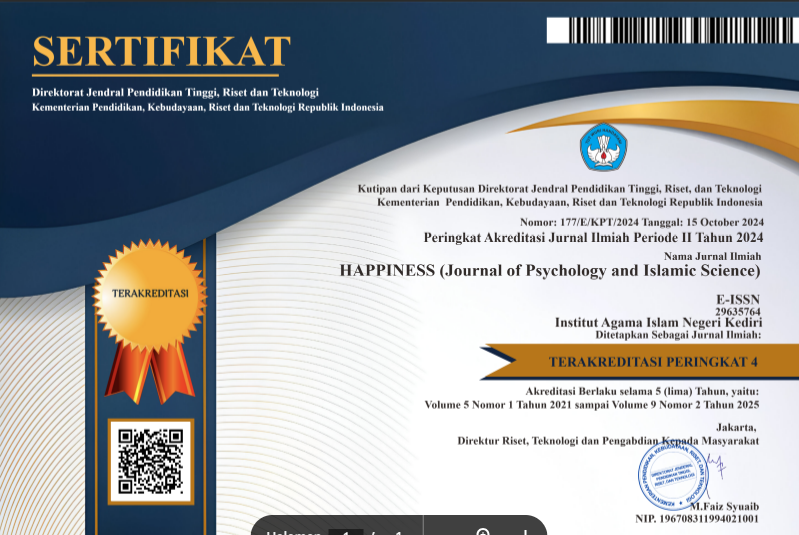Hubungan Antara Kepribadian Proaktif Dan Dimensidimensi Work-Life Balance Pada Perawat
DOI:
https://doi.org/10.30762/happiness.v4i2.368Keywords:
proactive personality, work-life balance dimensions, nurseAbstract
Nurses have an important role in their work, namely providing nursing care regarding the health and life of their patients. Apart from having a role in nursing work, they also have other roles outside of the work that must be undertaken. The purpose of this study was to determine the relationship between proactive personal ity and work-life balance dimensions of nurses. The sample used was 170 nurses in East Jakarta using accidental sampling method. The work-life balance variable is measured by a work-life balance scale from Fisher, Bulger and Smith (2009) which consists of four dimensions, namely work interference with personal life, personal life interference with work, personal life enhancement of work and work enhancement of personal life. Proactive personality variables were measured using the proactive personality scale from Bateman & Crant (1993). The analysis technique used in this research is Pearson Product Moment. The results of the calculation of Pearson Product Moment analysis techniques show that there is a significant positive relationship between proactive personality with the dimensions of work interference with personal life (r = 0.236), personal life enhancement of work (r = 0.462) and the dimensions of work enhancement of personal life (r = 0.559). There is a significant negative relationship between proactive personality and dimensions of personal life interference with work (r = -0.153)
Downloads
Downloads
Published
How to Cite
Issue
Section
License
Copyright (c) 2020 Riski Hajizah, Endro Puspo Wiroko, Anindya Dewi Paramita

This work is licensed under a Creative Commons Attribution-ShareAlike 4.0 International License.




















